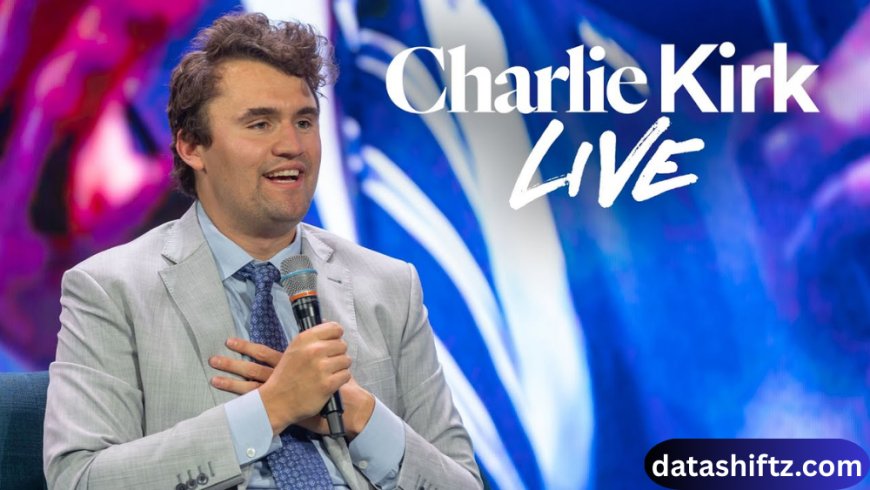Charlie Kirk Currency: Understanding the Debate Around Economics and Influence

Introduction
In recent years, discussions around money, politics, and influence have become increasingly intertwined. One figure who has stepped into this conversation is Charlie Kirk, a conservative political commentator and founder of Turning Point USA. Known for his outspoken views on culture, economics, and governance, Kirk often raises debates about the role of currency, free markets, and government policy.
The phrase “Charlie Kirk Currency” has gained attention as part of broader conversations about financial systems, digital currency, and the ideological battles over economic policy in the United States. This article explores what the term represents, Kirk’s perspectives on money, and the wider implications for society and politics.
Who is Charlie Kirk?
Charlie Kirk is an American conservative activist, author, and speaker. He founded Turning Point USA (TPUSA) in 2012, a nonprofit organization that promotes conservative values on college campuses. Over the years, Kirk has become one of the most prominent conservative voices, engaging in debates on topics such as capitalism, socialism, taxation, and currency.
His focus on economic freedom is often framed around the defense of the free market system and skepticism toward centralized government control—especially when it comes to money.
Charlie Kirk and Currency Debates
Free Market Principles
Kirk consistently argues that currency should reflect free market dynamics rather than being heavily influenced by government intervention. He often warns against inflationary practices and excessive federal spending, which can devalue money and harm the middle class.
Digital Currency Concerns
With the rise of cryptocurrencies and discussions about Central Bank Digital Currencies (CBDCs), Kirk has expressed concern about government overreach. He points out that digital currencies controlled by central banks could threaten privacy and personal financial freedom.
Linking Economics to Politics
For Kirk, debates over currency are not just about economics—they are also about political ideology. He frames strong currency, low inflation, and fiscal discipline as essential to preserving individual freedom.
Charlie Kirk’s Views on Currency
| Aspect | Charlie Kirk’s View | Implication |
|---|---|---|
| Free Market Currency | Currency should remain tied to free market value without excessive state manipulation | Stronger economic independence and limited inflation |
| Government Spending | Excessive printing of money devalues the dollar | Inflation harms working-class families |
| Digital Currency (CBDC) | Central bank digital currency poses risks to privacy and freedom | Risk of government surveillance and reduced financial autonomy |
| Cryptocurrency (e.g., Bitcoin) | Can offer alternatives to centralized systems but must be approached with caution | Potential for innovation but also volatility |
| Inflation and Debt | National debt and inflation represent systemic economic mismanagement | Threats to long-term prosperity and stability |
Currency and Ideological Impact
1. Economic Freedom vs. Centralization
Kirk positions the debate on currency as part of a broader struggle between freedom and control. He argues that centralized economic systems often lead to reduced liberty for individuals.
2. Appeal to Younger Generations
Through TPUSA and public speaking, Kirk introduces students to free-market economic ideas. Currency discussions are framed as real-world examples of how government policies can affect everyday lives.
3. Political Messaging
Currency debates also serve as powerful messaging tools for broader political campaigns. By highlighting inflation, debt, or digital currency risks, Kirk connects financial issues to cultural and political battles.
Key Themes in “Charlie Kirk Currency”
-
Inflation as a Hidden Tax – He emphasizes that inflation reduces purchasing power and disproportionately harms the middle and lower classes.
-
Skepticism of CBDCs – Kirk views central bank digital currencies as potential surveillance tools.
-
Support for Alternatives – While cautious, he acknowledges cryptocurrency as an innovative response to centralized finance.
-
Warning Against Government Debt – He frequently highlights the risks of unsustainable spending and borrowing.
-
Advocacy for Free Markets – His overall message is that currency should operate under free market rules, not government mandates.
Broader Implications for Society and Politics
The conversation around “Charlie Kirk Currency” extends beyond economics. It reflects ongoing debates about the role of government in people’s lives, the future of financial systems, and the interplay of politics and economics.
-
For Conservatives: His arguments resonate with those who value personal freedom, limited government, and economic independence.
-
For Critics: Opponents argue that his positions oversimplify complex issues and ignore the role of regulation in maintaining stability.
-
For Policymakers: The debate underscores the importance of balancing innovation, privacy, and economic security.
Conclusion
The idea of “Charlie Kirk Currency” symbolizes more than just a discussion about money—it is about values, freedom, and the future of governance. By connecting economic debates to cultural and political movements, Charlie Kirk has amplified conversations about inflation, digital currency, and financial responsibility.
Whether one agrees with his views or not, his influence in framing currency as a matter of freedom versus control has shaped discussions among younger generations, policymakers, and political movements. Ultimately, the debate highlights how deeply intertwined economics and politics are in shaping society’s future.





























